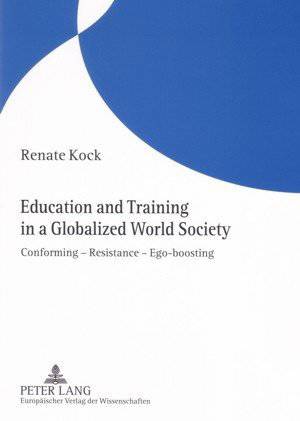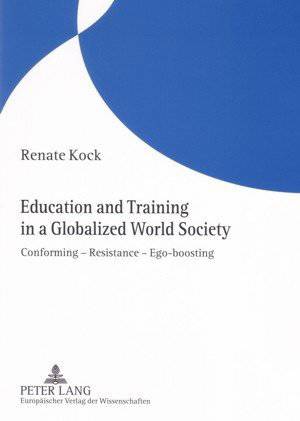
- Afhalen na 1 uur in een winkel met voorraad
- Gratis thuislevering in België vanaf € 30
- Ruim aanbod met 7 miljoen producten
- Afhalen na 1 uur in een winkel met voorraad
- Gratis thuislevering in België vanaf € 30
- Ruim aanbod met 7 miljoen producten
Zoeken
Education and Training in a Globalized World Society
Conforming - Resistance - Ego-Boosting
Renate Kock
Paperback | Engels
€ 59,95
+ 119 punten
Omschrijving
Is there a pedagogy for a globalized world society which guarantees a successful school education? Research into this question seems topical and constructive against the background of the PISA-Studies and their results. The author examines the different paradigms of pre-modern pedagogy, the pedagogy of the secular Modern and the Post-Modern. Taking India as an example, the models of Tagore and Ghandi, current reform-projects in the south-west of the country and education and training-concepts of a society of people who understand themselves as global are investigated. In the conclusion, the author presents ten summarized theses on how education and training should gauge the effects of a global social change on their working conditions.
Specificaties
Betrokkenen
- Auteur(s):
- Uitgeverij:
Inhoud
- Aantal bladzijden:
- 205
- Taal:
- Engels
Eigenschappen
- Productcode (EAN):
- 9783631544297
- Verschijningsdatum:
- 3/05/2006
- Uitvoering:
- Paperback
- Formaat:
- Trade paperback (VS)
- Afmetingen:
- 148 mm x 210 mm
- Gewicht:
- 329 g

Alleen bij Standaard Boekhandel
+ 119 punten op je klantenkaart van Standaard Boekhandel
Beoordelingen
We publiceren alleen reviews die voldoen aan de voorwaarden voor reviews. Bekijk onze voorwaarden voor reviews.











